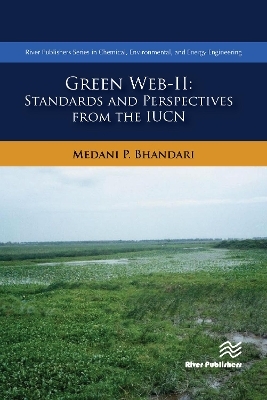
Green Web-II: Standards and Perspectives from the IUCN
River Publishers (Verlag)
978-87-7022-012-5 (ISBN)
In dealing with the IUCN, one must bear in mind that there never has been, and undoubtedly never will be, any other organization even remotely resembling it. Its peculiarities, subtleties and complexities are sometimes mind-boggling (Nicholson 1990 in Holdgate 1999: ix).
Green Web-II investigates IUCN’s role in global biodiversity conservation policy as well as in national program development in India, Pakistan, Nepal and Bangladesh. It explores how nature protection priorities and approaches are promoted or addressed by IUCN, an international organization, and how environment conservation policies are created and maintained in states with different capacities of South Asia. It also evaluates IUCN's competency in bio-diversity, climate change, nature conservation and environmental policy formulation at global, regional and country level. This study is the first detailed scholarly study on the IUCN as an organization as well as on its efforts in biodiversity conservation.
This book adds to our knowledge, firstly by contributing to a small but growing body of work on the sociology of international organizations. IOs, especially International Governmental Organizations (IGOs), have long been the subject of mostly political science. Secondly, it applies a fuller sociological imagination to the study of IOs by critically exploring one of the largest and most active nature conservation organizations in the world. Thirdly, it also explores how the IUCN actually goes about building protectoral programs with individual member nations.
Additionally, the book explores the recent development of the green economy (GE) concepts into IUCN’s program planning today. The green economy initiative applies a people-first approach. Although the concept is relatively new, this research explores the theoretical development of a green economy and illustrates how this theory is applied in IUCN’s program planning to program implementation.
Technical topics discussed in the book include:
Motivation of Environment Conservation - How personal efforts make difference
Role of International Environment Conservation Organizations
Political Economy of Organizations, Network theory, Institutional theory, Stakeholder theory, Governance theory
Governance performances and Competitiveness
Popularity indices
Knowledge creation and diffusion
Conservation commons
Medani P. Bhandari is Professor of Social and Environmental research methods and Crisis Management at Sumy State University, Ukraine; Faculty and Deputy Program Director of Sustainability Studies at Akamai University, Hilo, Hawaii; and Professor of Natural Resources and the Environment at Arabian Gulf University, Bahrain.
Preface; introduction-The Power of Logo/ The brand, India, Pakistan, Bangladesh and Nepal's scenario in terms of strength; Theoretical frameworks, Political Economy of Organizations, Network theory, Institutional theory, Stakeholder theory, Governance theory; The IUCN-Organizational structure; Governance, World Conservation Congress; Business and Biodiversity-The program of controversies and focus, Economics and Environment Interlinked programs, Ecosystem Management Program (EMP), Environmental Law Program (ELP), Forest conservation Program (FCP); exploring IUCN’s failings – members perspective -View from the members in the IUCN system, The blind spots in IUCN’s principles and practices; Comments from Members: How they value IUCN; the strengths and weaknesses of IUCN-The framework of organizational evaluation, Major challenges of IUCN, The weaknesses of IUCN; comparative-Overview-The Case Studies of Bangladesh, India, Nepal And Pakistan -Governance performances, Competitiveness level in relation to the 12 pillars, Institutional competitiveness in global context, Environmental Performance Index (EPI), Environmental Conservation movement with focus on Forest conservation; IUCN and its role in conservation of nature-The IUCN in South Asia, IUCN’s roles in environmental regime creation in the region, Conservation programs in Bangladesh, India, Nepal and Pakistan; Theory, Knowledge Creation, and Knowledge Diffusion at IUCN for National and International Program Development; Conservation Commons, Conclusion-The popularity index of global conservation organizations, Annexes
| Erscheinungsdatum | 02.10.2018 |
|---|---|
| Reihe/Serie | River Publishers Series in Chemical, Environmental, and Energy Engineering |
| Verlagsort | Gistrup |
| Sprache | englisch |
| Maße | 156 x 234 mm |
| Themenwelt | Naturwissenschaften ► Biologie ► Ökologie / Naturschutz |
| ISBN-10 | 87-7022-012-3 / 8770220123 |
| ISBN-13 | 978-87-7022-012-5 / 9788770220125 |
| Zustand | Neuware |
| Haben Sie eine Frage zum Produkt? |
aus dem Bereich


